isis
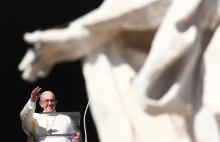
"I am profoundly saddened by the terrorist attacks in these recent days in Somalia, Afghanistan, and yesterday in New York," the pope said in an address to mark All Saints' Day, adding that he was praying for the victims and their families.

There are two actions the president should take now to stop bureaucrats from obstructing assistance to genocide survivors whose very existence as a people teeters on a precipice.

DOZENS OF CHURCHGOERS are dressed in their Sunday best outside St. John’s Church in Qaraqosh, Iraq. Before entering, each person is individually searched. First, they are patted down for suicide vests. Then their bags are inspected for weapons.
It is Easter—the first to be celebrated in this church since Islamic State (ISIS) militants were driven out of Qaraqosh, formerly Iraq’s largest Christian-majority city, by Iraqi forces after nearly three years of conflict.
Everyone is cautious. A week earlier, ISIS suicide bombers killed more than 40 people, including themselves, at two churches in northern Egypt during Palm Sunday services.
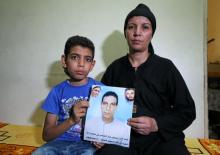
Egyptian schoolboy Mina Habib rarely leaves his house these days. The 10-year-old is still recovering from seeing Islamist gunmen kill his father for being Christian. In an attack claimed by Islamic State, gunmen ambushed a group of Coptic Christians traveling to a monastery in Minya in southern Egypt last month, killing 29 and wounding 24, with Mina's father Adel among the dead.
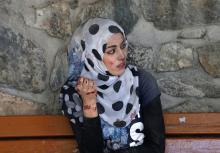
Basir Mujahid, a spokesman for city police, said the explosives were hidden in a sewage truck. He also suggested that the German embassy might not have been the target of the blast, which sent towering clouds of black smoke into the sky near the presidential palace.
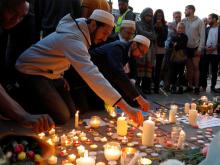
In the wake of the terrorist attack at the Ariana Grande concert in Manchester, Muslims along with the rest of the diverse British city are mourning the dead and tending to the wounded.
But for Muslims in particular, the suicide bombing that left more than 20 dead and dozens wounded on May 22 has also sown fear. They worry about a backlash from those who would blame all followers of Islam for the carnage, for which the so-called Islamic State takes credit.
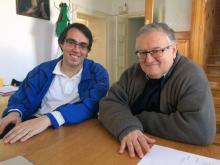
Tucked up near the Austrian border, about 160 miles from Budapest, is a small Hungarian town of 12,000 people. It’s a quiet place about three and a half hours, and two trains rides, from Hungary’s capital.
But the community has been split by the decision of the local Catholic parish priest, the Rev. Zoltan Nemeth, to allow some asylum-seekers to take shelter in a church building.

Pope Francis, starting a two-day visit to Egypt, urged Muslim leaders on Friday to unite in renouncing religious extremism at a time when Islamist militants are targeting ancient Christian communities across the Middle East. Francis's trip, aimed at improving Christian-Muslim ties, comes just three weeks after Islamic State suicide bombers killed at least 45 people in two Egyptian churches.

Copts are the largest minority population in the Middle East and make up 10 percent to 15 percent of Egypt’s population. Founded in the first century by St. Mark the Apostle, it is believed to be one of the oldest Christian denominations in the world.

In the desecrated churches of Qaraqosh, Christians are busy removing graffiti daubed by the Sunni Muslim militants during two and a half years of control — only for new slogans to have appeared, scrawled by Shi'ite members of the Iraqi forces fighting street to street with the jihadists in Mosul.
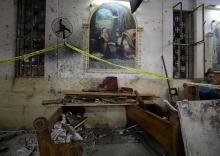
At least 44 people were killed in Egypt in bomb attacks at the cathedral of the Coptic Pope and another church on Palm Sunday, prompting anger and fear among Christians and leading to troop deployments and the declaration of a three-month state of emergency. Islamic State claimed responsibility for the attacks, which also injured more than 100 people and occurred a week before Coptic Easter, with Pope Francis scheduled to visit Egypt later this month.
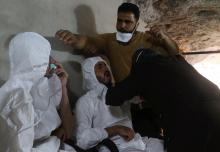
A suspected Syrian government chemical attack killed scores of people, including children, in the northwestern province of Idlib on Tuesday, a monitoring group, medics, and rescue workers in the rebel-held area said. The U.S. government believes the chemical agent sarin was used in the attack, a U.S. government source said, adding it was "almost certainly" carried out by forces loyal to Syrian President Bashar al-Assad.

Every time more civilians are killed, it gives further weight to the idea that we have lowered value of human life — or at least, the value placed on Iraqi lives. Imagine the response, by comparison, if 200 American aid workers were killed in an errant strike. The seemingly low threshold for civilian safety makes the fight against ISIS harder, not easier. It makes ISIS propaganda more believable. At the very moment when ISIS should be gasping its final breath, these incidents inject life into their militancy.
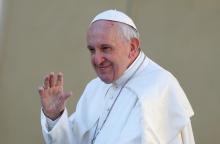
Pope Francis on Wednesday said it was "imperative and urgent" to protect civilians in Iraq, speaking as U.S. investigators looked into who caused an explosion in Mosul that killed scores of non-combatants. Addressing tens of thousands of people at his weekly general audience in St. Peter's Square, Francis said he was "concerned about civilian populations trapped in the neighborhoods of western Mosul."
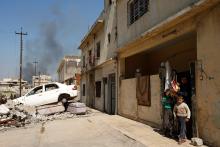
The military statement differed from reports by witnesses and local officials that said many more bodies were pulled from the building after a coalition strike targeted IS militants and equipment in the Jadida district.
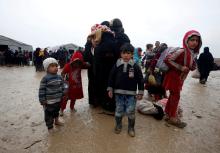
The battle for Mosul, Islamic State's last major stronghold in Iraq, is now in its sixth month with Iraq forces backed by a U.S.-led coalition, air strikes and advisers now controlling the east side and more than half of the west.
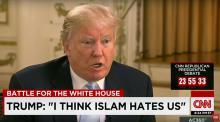
With his anti-Muslim rhetoric and planned travel bans, you’d think President Trump would be a favorite target for Islamic State’s propaganda. The jihadist caliphate in Syria and Iraq must be pulling out all the stops to slam him as the epitome of Islamophobia.
Well, think again. The extremist group that Trump vows to “totally obliterate” has hardly printed or broadcast a word about him since before the November election. The caliphate’s Ministry of Media acts almost as if he didn’t exist.

President Trump, long-chided for failing to address a surge in hate crimes, began his first address to Congress by invoking Black History Month, and condemning recent threats against Jewish institutions and the shooting of Indian men in Kansas City.
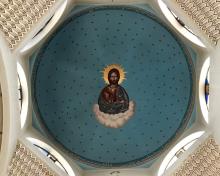
We’re in a bombed-out church in the heart of Mosul, where ISIS had painted a giant black flag on the cross out front.
Where thousands of Christian homes were marked with the Arabic letter “N,” their lives threatened with the sword, their possessions looted, families ultimately driven out of their ancestral neighborhoods like cattle.
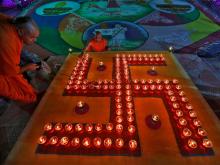
In one weekend, the swastika appeared in public places in three U.S. cities — Houston, Chicago, and New York. The sight was so offensive, average New Yorkers pulled out hand sanitizer and tissues to wipe the graffiti from the walls of the subway where it had been scrawled.
“Within about two minutes, all the Nazi symbolism was gone,” one subway rider who was there said. He added, “Everyone kind of just did their jobs of being decent human beings.”